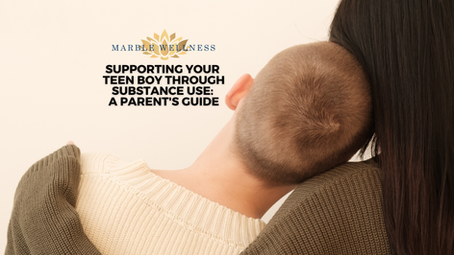
When you have a partner dealing with substance abuse, it can be overwhelming.
We wrote this up as the blog version of a webinar we did on the same topic! Please feel free to view the webinar for a robust discussion.
We’re here to provide guidance and support for those who find themselves navigating the challenging terrain of supporting a partner with substance abuse issues. We aim to offer a helping hand to partners, arming them with essential tools and insights to prioritize their own well-being while supporting their loved one’s journey towards recovery.
Understanding the Importance of Self-Care in Partnerships
As partners, it’s natural to want to support and care for our loved ones, especially when they are dealing with substance abuse. However, one crucial lesson to remember is that effective care for your partner begins with caring for yourself.
In this section, we will delve into holistic self-care strategies tailored for partners in such situations. We’ll explore support groups, essential self-care practices, the benefits of therapy in St. Louis, and the significance of focusing on what you can control.
Holistic Self-Care Tips for Partners
1. Join Support Groups
Seek out support groups specifically designed for partners of individuals with substance abuse issues. These groups offer a safe space to share experiences, gain valuable insights, and receive emotional support from others who can relate to your situation.
The most well known of these is Al-Anon, which is a well-respected national organization with local chapters through the States.
It’s also not uncommon for other organizations, like churches, hospitals, nonprofits, or therapy practices to also offer these types of support groups. A quick google search can help you find what you’re looking for.
2. Prioritize Your Mental Health
Remember, you deserve happiness and well-being too. Engage in self-care practices like meditation, exercise, and journaling to manage stress and maintain your emotional balance.
Those not your style? That’s okay! This much more about the participation in any of your favorite hobbies with the purpose of keeping joy and well-being your life.

3. Explore Therapy in St. Louis
Therapy can be a powerful tool for partners dealing with substance abuse issues. A licensed therapist in St. Louis can help you navigate your emotions, develop coping strategies, and provide guidance on how best to support your partner.
As you’ve probably guessed from the writing of this blog, we have therapists on our team at Marble Wellness who could provide this individual therapy, and we have several team members who can provide couples counseling as well.
4. Focus on What You Can Control
Substance abuse can often feel overwhelming, but it’s crucial to recognize that you can’t control your partner’s choices.
Please pause and reflect on that for a minute. Read it again and sit with it.
Instead, focus on the things you can influence, like your own well-being and the boundaries you set.
Navigating the Stages of Change
There’s something in the therapy field called “the stages of change.” It is a theoretical model about human’s approach to change….any change.
Understanding the stages of change that your partner may go through on their journey to recovery is essential. Each stage requires a different approach from you as a supportive partner. Let’s explore these stages and learn what is helpful (and what isn’t) at each phase:
1. Pre-Contemplation
At this stage, your partner may not yet recognize the need for change. It’s important to offer non-judgmental support and resources while respecting their autonomy.
2. Contemplation
During this phase, your partner is considering change but may still have doubts. Provide information on treatment options, but avoid pushing them into action prematurely.
3. Preparation
As your partner becomes more willing to change, assist them in setting achievable goals and seeking professional help if they haven’t already.
4. Action
In the action phase, your partner is actively engaged in recovery. Your role is to offer encouragement, attend therapy sessions together if needed, and maintain a supportive environment.
5. Maintenance
After successful changes, your partner enters the maintenance phase. Continue to be a source of support, and celebrate their achievements while staying vigilant for potential relapses.
Here’s another breakdown of the stages, specifically for addiction recovery.
Setting and Maintaining Personal Boundaries
Establishing clear and healthy boundaries is crucial for safeguarding your well-being while supporting a partner with substance abuse issues. Here’s how to create and maintain these boundaries effectively:
1. Identify Your Limits
Reflect on your own needs and comfort levels. Determine what behaviors and situations are acceptable and which ones cross your boundaries.
2. Communicate Clearly
Share your boundaries with your partner honestly and kindly. Effective communication is key to ensuring your expectations are understood.
3. Enforce Boundaries
Be prepared to uphold your boundaries. If they are repeatedly violated, take the necessary steps to protect your well-being, which may include seeking support or counseling for yourself.

Creating a Safety Plan
Substance abuse can bring about challenging situations, and having a comprehensive safety plan in place can help address potential crises and ensure the well-being of both you and your partner. Here’s how to develop a safety plan:
1. Identify Triggers
Recognize the situations, behaviors, or emotions that might trigger risky behaviors in your partner.
2. Establish Emergency Contacts
Compile a list of emergency contacts, including friends, family members, therapists, and crisis hotlines that you can reach out to if necessary.
3. Discuss Crisis Responses
Plan how you will respond to crises together, ensuring safety for both you and your partner. This might involve calling for professional help or seeking a safe environment.
4. Review and Update
Regularly revisit and update your safety plan as circumstances change or new challenges arise.
Taking steps toward cultivating wellness for yourself is not only beneficial for you but also for your partner’s recovery journey. We recognize that couples dealing with substance abuse face unique challenges, and our commitment is to help you navigate this journey with compassion and resilience. If you have questions, please reach out!
About the Author
Skyler Martin is a dedicated therapist at Marble Wellness, bringing a wealth of knowledge and expertise to his therapy practice. Skyler’s journey began at Ozark Teen Challenge, where he spent seven impactful years working with teenage boys in a renowned rehabilitation center, specializing in substance abuse. Here, he witnessed young men reclaim their lives from the grips of addiction, igniting his dedication to making a positive impact on their lives.
Skyler’s commitment to addressing substance abuse extended to working with adults at Places for People, a premier nonprofit agency in St. Louis. Here, he gained invaluable insights into supporting individuals on their path to sobriety and emotional well-being. In therapy sessions with Skyler, clients can expect a warm and empathetic environment, providing a safe space to explore their challenges and emotions. Whether you’re a parent seeking support in coping and guiding your son or a teenage boy looking to embark on your own transformative journey, Skyler is ready to be your steadfast ally.
Recovery is a journey of hope and empowerment, and with Skyler’s guidance, you can embrace life beyond substance abuse, unlocking the potential within you to lead a life filled with possibilities, joy, and fulfillment. Reach out today to schedule a session and let Skyler be your compassionate guide towards healing and transformation. Your future is brimming with promise, and Skyler is excited to be a part of your transformative journey to a healthier and happier you.
Start Therapy for Mental Health in St. Louis
If you live in St. Louis and are ready to improve your mental health, we are here to help.
Contact Us!

Additional Counseling Services at Marble Wellness in St. Louis, MO and Chicago, IL
Counseling services designed to help set you on a path of living a more fulfilled, calm, and happy life.
St. Louis
Our St. Louis team of therapists have a variety of training backgrounds and areas of expertise. We specialize in anxiety, depression, grief, chronic illness, therapy for men, couples, and maternal overwhelm. We can also help new moms with various postpartum concerns, moms in the thick of parenting, and moms with teens. We can also chat from wherever you are in the state with online therapy in Missouri and online therapy in Illinois. No matter where you are in your journey, we would love to support you.
Chicago
Our Chicago team of therapists offer a wide range of mental health services to help our clients through the different challenges and hurdles in their life. In addition to anxiety, depression, grief, therapy for men, and maternal overwhelm, we are specialized in professional burnout, therapy for breakups, and love partnering with working moms.



